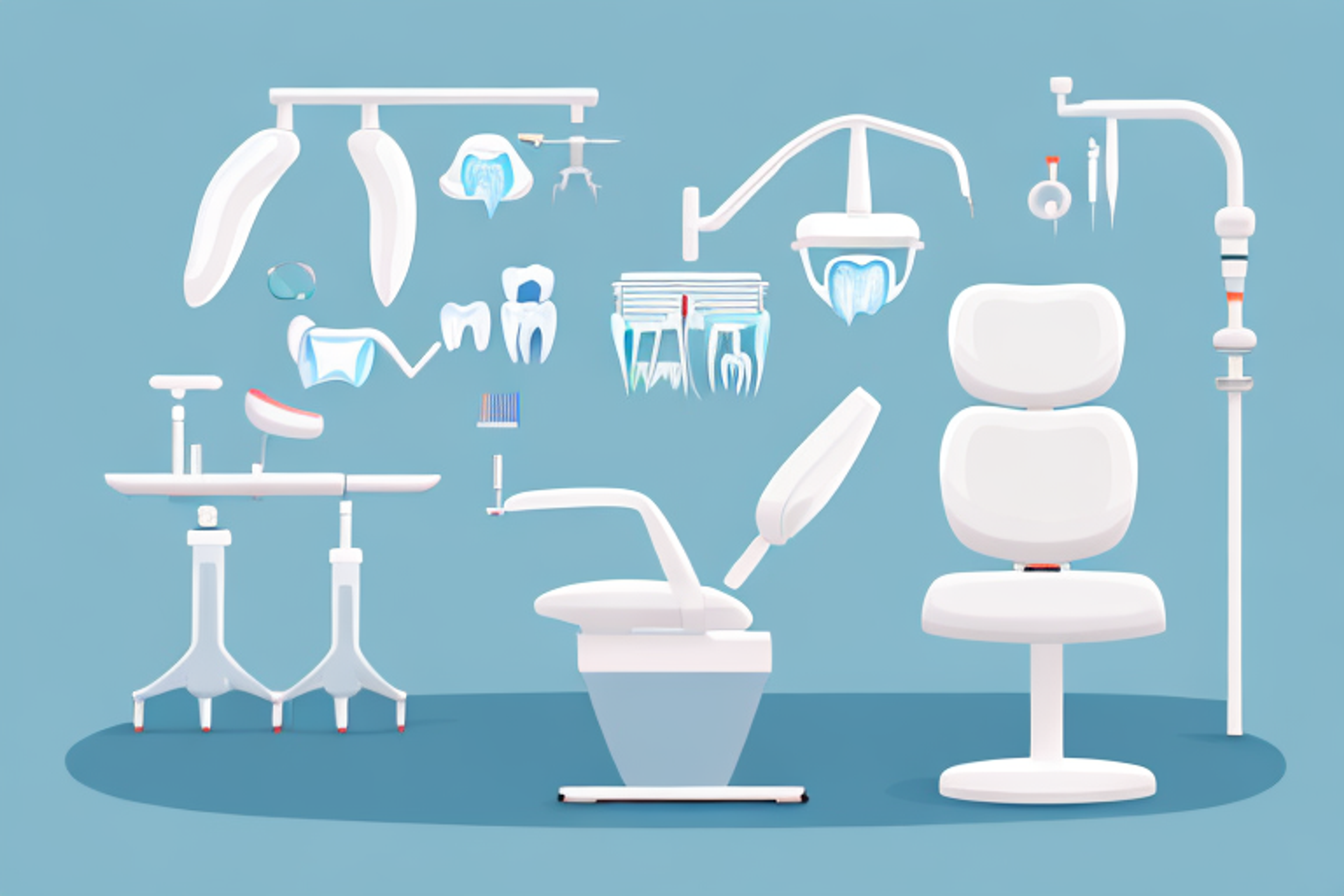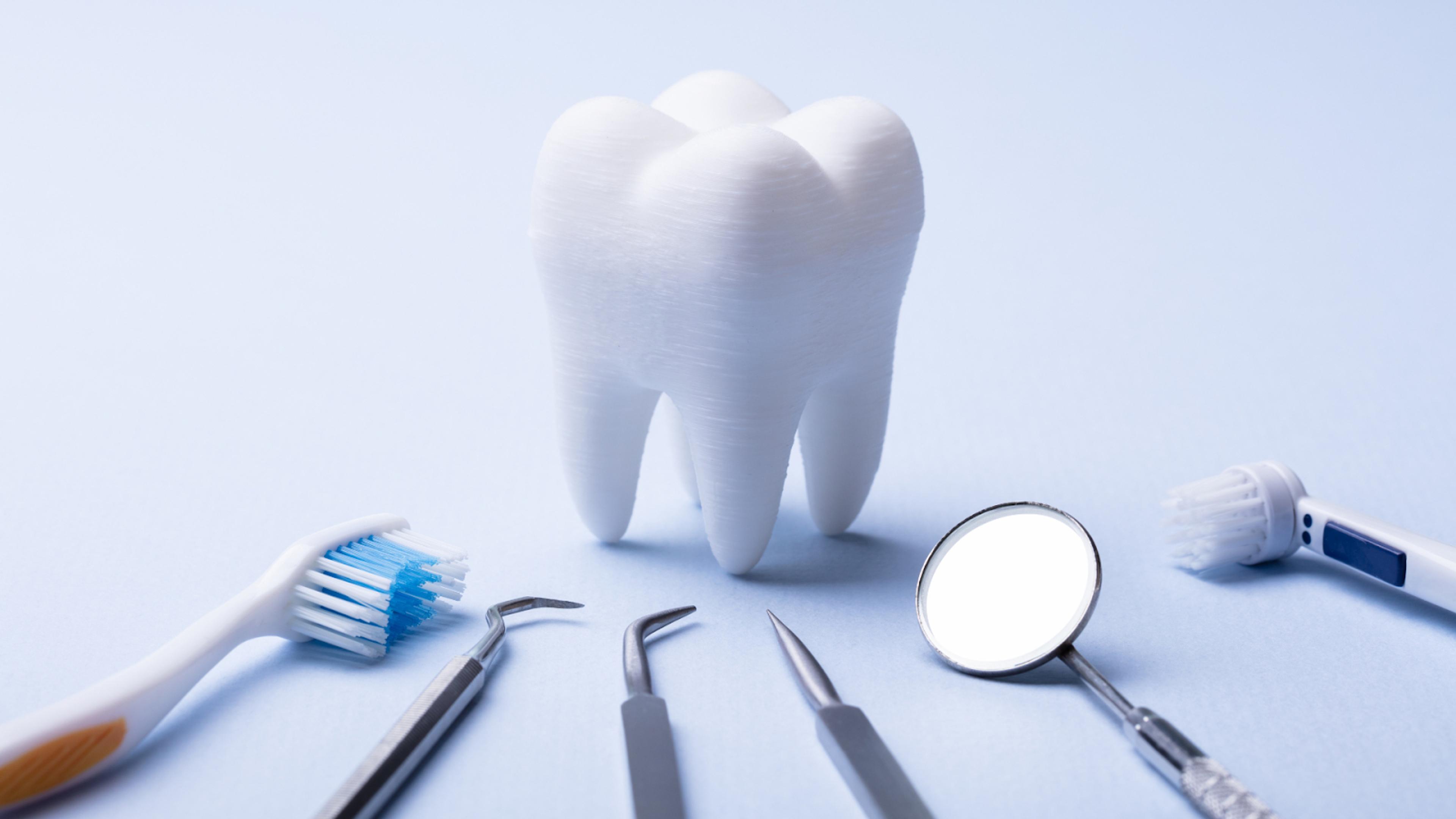How to Become a Dentist: The Complete Guide to a Fulfilling Career in Dentistry
Discover the step-by-step guide to becoming a dentist and achieving a fulfilling career in dentistry.
Posted June 13, 2025

Join a free event
Learn from top coaches and industry experts in live, interactive sessions you can join for free.
Table of Contents
If you are interested in pursuing a career in dentistry, there are several educational and professional steps you will need to take. Becoming a dentist is a rewarding and fulfilling career path, and this guide will provide you with a comprehensive overview of what it takes to achieve your goals.
Why Choose Dentistry as a Career
Dentistry is a highly respected profession that allows you to help others maintain their oral health and improve their overall wellbeing. As a dentist, you will have the opportunity to work with patients of all ages and backgrounds, and develop meaningful relationships with them over time. Dentistry is also a stable and financially lucrative career choice, with a growing demand for dental services all over the world.
In addition to the personal and financial benefits of a career in dentistry, it is also a field that is constantly evolving and advancing. As a dentist, you will have the opportunity to stay up-to-date with the latest technologies and techniques, and continuously improve your skills and knowledge. This allows you to provide the best possible care for your patients and make a positive impact on their lives.
Educational Requirements for Becoming a Dentist
To become a licensed dentist, you will need to complete a rigorous educational program that includes both academic coursework and hands-on clinical experience. You will typically need to complete a Bachelor's degree before moving on to a dental school program, which can take an additional four years to complete. During this time, you will study a range of subjects related to dental anatomy, physiology, and pathology, as well as conduct clinical work with real patients under the supervision of licensed dentists.
After completing dental school, you will need to pass a licensing exam in order to practice as a dentist. However, the learning doesn't stop there. Dentists are required to participate in continuing education courses throughout their careers in order to stay up-to-date with the latest advancements in dental technology and techniques. This ensures that they are providing the best possible care to their patients and maintaining their license to practice.
Understanding the Dental School Application Process
Getting into dental school is a competitive process, and requires a strong academic record, as well as impressive clinical experience and test scores. You will need to submit an application, which includes letters of recommendation, transcripts, and a personal statement, and may need to attend an in-person interview. It is important to start preparing for dental school early on, and to build a strong network of mentors and advisors who can guide you through the process.
Tips for Getting Accepted into Dental School
To increase your chances of getting accepted into dental school, it is important to take a rigorous course load in undergraduate studies, and to maintain a high GPA. You should also seek out opportunities for shadowing or volunteering in dental clinics, and participate in dental research projects. Additionally, you can take the Dental Admissions Test (DAT), which measures your proficiency in several key areas related to dentistry.
Another important factor to consider when applying to dental school is your personal statement. This is your opportunity to showcase your passion for dentistry and explain why you are a good fit for the program. Be sure to highlight any relevant experiences or skills that make you stand out as a candidate. It is also important to have strong letters of recommendation from professors, dentists, or other professionals who can speak to your abilities and potential as a dental student.
Preparing for Dental School: What to Expect
Once you have been accepted into dental school, you can expect to undergo an intense and challenging program that will prepare you for the workforce. You will study a variety of subjects, from oral anatomy to microbiology, and will participate in extensive clinical rotations that allow you to work with patients of all ages and backgrounds. You will also learn how to use the latest dental technology and tools to diagnose and treat dental issues, and will work closely with other dental professionals to provide comprehensive care for your patients.
One of the most important aspects of dental school is developing strong communication skills. As a dentist, you will need to be able to effectively communicate with your patients, explaining complex procedures and treatment options in a way that is easy to understand. You will also need to work closely with other dental professionals, such as dental hygienists and assistants, to ensure that your patients receive the best possible care.
In addition to your coursework and clinical rotations, you may also have the opportunity to participate in research projects or community outreach programs. These experiences can help you develop a deeper understanding of the field of dentistry and give you the chance to make a positive impact on the lives of others. Overall, dental school is a challenging but rewarding experience that will prepare you for a fulfilling career in oral healthcare.
What You Will Learn in Dental School: A Comprehensive Overview
Dental school curriculum varies from program to program, but typically includes courses in oral pathology, pharmacology, radiology, periodontology, orthodontics, and more. You will also take part in clinical rotations that allow you to practice and refine your skills, from filling cavities to performing complex oral surgeries. The goal of the program is to prepare you for the dental licensure exam, which is required in most states to practice legally as a dentist.
The Importance of Hands-on Experience in Dentistry
Hands-on experience is a crucial part of any dental education, as it allows you to apply the knowledge you have learned in a real-world setting. You will work with real patients, under the supervision of licensed dentists, and will gain valuable experience diagnosing and treating a variety of dental issues. This experience will help you feel confident and prepared to work independently as a licensed dentist, and to provide high-quality care to your patients.
Navigating the Clinical Experience in Dental School
The clinical experience in dental school can be challenging, as you will be working with real patients who have a range of dental issues. It is important to stay focused and organized, and to communicate clearly with your patients and supervising dentists. You should also take advantage of the opportunity to work with different types of patients, from children to seniors, and to learn techniques for effective patient communication and education.
Preparing for Licensure and Board Exams
After completing your dental education, you will need to pass a licensure exam in order to practice as a dentist in your state. This exam typically includes both a written and practical portion, and tests your knowledge of dental theory and your ability to perform various dental procedures. It is important to prepare extensively for this exam, and to seek out advice and guidance from experienced dentists and mentors.
The Different Types of Dentists and Their Specialisms
There are several different types of dentists, each with their own areas of expertise and specialisms. These include general dentists, pediatric dentists, orthodontists, periodontists, and more. It is important to choose a specialization that aligns with your interests and skills, and to seek out additional training and education as necessary.
Working as a General Dentist: What to Expect
As a general dentist, you will work with patients of all ages and backgrounds, and will diagnose and treat a wide range of dental issues. You will perform routine cleanings and exams, fill cavities, extract teeth, and provide education and advice on oral health and hygiene. You may also refer patients to specialists as necessary, or collaborate with other dental professionals on complex cases.
Starting Your Own Dental Practice: A Step-by-Step Guide
Starting your own dental practice can be a rewarding way to build your own business and provide high-quality care to your patients. To do so, you will need to follow several key steps, including obtaining financing, securing a location, purchasing equipment, hiring staff, and marketing your services. It is important to seek out advice and support from other dental professionals and mentors, and to stay up-to-date on the latest trends and technologies in the industry.
The Latest Trends and Technologies in Dentistry
The field of dentistry is constantly evolving, with new technologies and techniques emerging all the time. Some of the latest trends in the industry include digital dentistry, which uses advanced imaging and computer technology to diagnose and treat dental issues, and minimally-invasive dentistry, which focuses on preserving as much natural tooth structure as possible during treatment. It is important to stay up-to-date on the latest trends and technologies in dentistry in order to provide the best possible care to your patients.
Opportunities for Continuing Education and Professional Development in Dentistry
Continuing education and professional development are crucial in the field of dentistry, as they allow you to stay current with the latest advances in the industry and to refine your skills over time. There are many opportunities for continuing education and professional development in dentistry, from attending conferences and workshops to participating in online forums and discussion groups. It is important to stay committed to lifelong learning in order to provide the highest quality care to your patients and to achieve success in your dental career.
In conclusion, becoming a dentist is a challenging but rewarding career path, with many opportunities for growth and success. To achieve your goals, you will need to complete a rigorous educational program, gain hands-on clinical experience, and stay up-to-date with the latest trends and technologies in the industry. With dedication and hard work, however, you can build a fulfilling career as a licensed dentist, and make a meaningful difference in the lives of your patients.
























